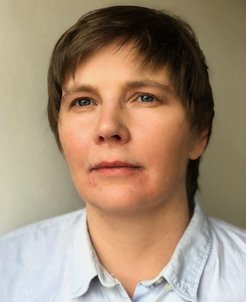Nathalie Picqué Elected as 2019 OSA Fellow
Each year, the title “Fellow” is awarded to OSA members for outstanding achievements in the field of optics and photonics.
The Optical Society OSA honours Max Planck Institute of Quantum Optics’ researcher Nathalie Picqué with the distinction 2019 OSA Fellow for her path-breaking work on molecular spectroscopy with optical frequency combs.

Laser frequency combs, as produced by mode-locked lasers, can contain millions of sharp, evenly spaced spectral lines. Nathalie Picqué has demonstrated how all these lines can be used together to record complex molecular spectra over a broad spectral range with unprecedented speed, sensitivity, and accuracy. Her technique of dual-comb spectroscopy avoids any moving parts and requires only two frequency comb sources of slightly different line spacing and a fast photo-detector connected to a computer.
Originally, laser frequency combs have been introduced as precise tools to measure the frequency of light, as highlighted by the 2005 Nobel Prize in Physics to John L. Hall and Theodor W. Hänsch (Director of the Emeritus Group Laser Spectroscopy at the Max Planck Institute of Quantum Optics).
About Nathalie Picqué
Nathalie Picqué obtained her doctoral degree in 1998 at the Université Paris-Sud (France) and she completed her Habilitation there in 2006. She launched her research activities towards broadband molecular spectroscopy with optical frequency combs about 13 years ago, then working as a permanent research scientist with the Centre National de la Recherche Scientifique in Orsay (France).
Initially, only two or three other groups in the world were also starting to investigate similar research topics. A decade later, her technique of dual-comb spectroscopy has become a hot research topic, and many groups around the world are moving towards such spectroscopy in order to realize accurate, fast and miniaturized spectroscopic tools for different applications, ranging from fundamental research in molecular physics to bio-molecular imaging and medical diagnostics.
In 2008, Nathalie Picqué started to collaborate with the Max Planck Institute of Quantum Optics in Garching near Munich (Germany), where she has been moving her laboratory and directing her own molecular spectroscopy group since 2011.
About the OSA
The Optical Society (formerly Optical Society of America) was founded in 1916 with the aim of promoting knowledge and understanding in the fields of optics and photonics. With its publications, conferences and industrial programs, the OSA supports the dissemination of scientific findings, their implementation in industrial applications and teaching. The OSA currently has around 19,000 members from more than 100 countries. It is regarded as the most significant association of the optics community worldwide.












